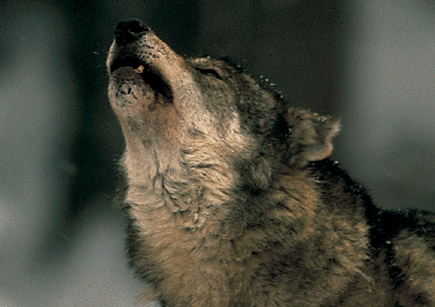
The German-Polish wolf population keeps growing - yet the grey predators are still endangered.
© Gernot PohlNew survey raises hope
Joint press information of EuroNatur and IFAW (International Fund for Animal Welfare) of June 29, 2011
Radolfzell, Hamburg. Compared to last year's census, the number of wolf packs in western Poland, close to the German border, has been rising. This is the result of a wolf monitoring project financed by the IFAW and the nature heritage fund EuroNatur and carried out by the Polish Association for Nature (AfN) WOLF, which presented its current report.
The scientists identified four new wolf packs and two pairs marking their respective territories. That makes a total of 19 wolf packs with around 95 individuals currently existing in western Poland. One newly discovered pack of seven wolves and the two pairs live on the Polish side of the region Lusatia, in immediate vicinity of the local wolf packs. Two further wolf packs with eight respectively three to four animals were observed around 80 km east of Szczecin. Further monitoring later this summer will reveal whether there will be any offspring in the new or the known packs.
"The results of the wolf monitoring are encouraging and show that the wolf packs are permanently settling in Western Poland", says Robert Kless of IFAW-Germany. As both the wolves from Lusatia and from western Poland belong to the same population, the current development will also benefit the wolf population in East Germany. Yet the wolves are still endangered", continues Kless. "In Poland, a new guideline for wolf management is currently under discussion and will fix a yearly number of animals allowed to be shot, a fatal decision that would not only affect the wolves in Poland, but also in Germany".
Besides, migration corridors of the animals are increasingly dissected by road traffic and road works. If the habitat of the grey wolf is further fragmented in Poland, this will also affect the German wolf population, which depends on the immigration of animals from eastern Poland. "We must definitely protect the existing and create new ecological corridors for the wolves, in order to enable them to migrate from their habitat in eastern Poland to the west", says EuroNatur project leader Annette Spangenberg.
Background information:
- Read more about EuroNatur's activities to protect the wolves in Europe
- Read more about the activities of the IFAW
- Map showing the results of the wolf monitoring in West Poland (PDF, 2 Mb)
For further questions please contact:
EuroNatur
Konstanzer Straße 22
78315 Radolfzell
Phone: 07732 - 92 72 10
Fax: 07732 - 92 72 22
E-Mail: info@euronatur.org
Internet: www.euronatur.org
Press contact: Katharina Grund
Contact: Annette Spangenberg
IFAW
Phone: 040-866 500 15
mobile: 0173 – 622 75 39
Email: adinkelmeyer@ifaw.org
Press contact: Andreas Dinkelmeyer


